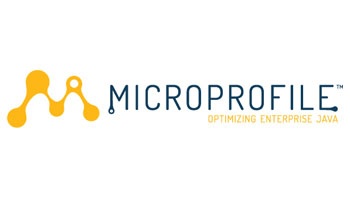OpenJDK Support FAQs
Published on 22 Jan 2019
by Matthew Gill
Topics:
JDK 8,
OpenJDK
|
0 Comments
As of this month, there will no longer be any public JDK 8 releases. This means that security fixes won't be publicly accessible. A Payara support contract lets you take advantage of Payara's partnership with Azul, providing you with access to Zulu Enterprise. This means that you will have access to all future JDK 8 security fixes. Below are some common questions we receive regarding Zulu Enterprise and how it works with a Payara support contract.
Jakarta EE 9 - 2019 Outlook
Published on 18 Jan 2019
by Arjan Tijms
Topics:
JakartaEE
|
5 Comments
As presumably well known by now, Java EE is in progress of being transferred to the Eclipse Foundation. A lot of work, partially behind the scenes, has been done to make his happen. This work included discussions between vendors and other interested individuals, the vetting of the code in the Java EE repo at GitHub, actually transferring the code from the Java EE repo to the Eclipse repo, and most recently the preparation of the transferred code to be buildable on Eclipse Foundation infrastructure and changing the Maven coordinates over from javax.* to jakarta.*
Gradual Migration from Java EE to MicroProfile
Published on 15 Jan 2019
by Rudy De Busscher
Topics:
Java EE,
Payara Micro,
Microservices,
MicroProfile
|
0 Comments
The goal of MicroProfile.IO is to optimise Java EE for a micro-service architecture. It is based on some of the Java EE specifications and standardise a few technologies from the micro-services space.
A Presentation about Payara Platform and MicroProfile in Warsaw
Published on 08 Jan 2019
by Ondro Mihályi
Topics:
Payara Micro,
Microservices
|
0 Comments
In November, my friend Milen Dyankov started it all by inviting me to come to Warsaw to give a talk at a local developer meetup (sponsored by Liferay, Milen's employer). After attending several big conferences during the year, coming to talk at a much smaller event sounded quite relaxing! Visiting Warsaw for the first time was also tempting so I agreed to attend.
Did You Know? Asynchronous REST Requests and Responses with Java EE and MicroProfile
Published on 04 Jan 2019
by Ondro Mihályi
Topics:
Java EE,
REST,
MicroProfile
|
2 Comments
Java EE 8 fully supports asynchronous handling of REST requests and responses, on both client and server side. This is useful to optimize throughput of an application or even when adopting reactive principles. MicroProfile type-safe REST client API also supports this concept to allow you to call REST services asynchronously with a much more straightforward way with plain Java interfaces.
Expose JMX Bean Values through MicroProfile Metrics
Published on 02 Jan 2019
by Rudy De Busscher
Topics:
MicroProfile,
Monitoring,
JMX
|
0 Comments
Payara Server provides many metrics within JMX beans. The most interesting metrics are the statistics around pools for HTTP threads and JDBC Connection pooling.
On the other hand, Payara Server also implements the MicroProfile Metrics specification. The retrieval of useful metrics from the running instance in the areas of CPU, memory, Class loading, and other MicroProfile specifications (like Fault Tolerance), are possible through the implementation of the MicroProfile Metrics in Payara Server.
Troubleshooting your Java EE Applications - Part 2
Published on 29 Dec 2018
by Gaurav Gupta
Topics:
Microservices,
REST,
MicroProfile
|
0 Comments
In the previous blog of this series, we learned different ways to troubleshoot Java EE application. This blog will continue to focus on different ways and techniques to catch potential issues in the early stages and how to find the root cause of application performance issues.
Securing Payara Server and Payara Micro with a Supported JDK
Published on 20 Dec 2018
by Ondro Mihályi
Topics:
JDK 8,
OpenJDK
|
0 Comments
As you probably already know, Oracle decided to stop providing public updates for Oracle Java Development Kit 8 (JDK 8) in January 2019. Public updates and security fixes will be provided by Oracle only for the latest version of Oracle JDK, for 6 months until the next new version. While personal users will still continue to get updates for Oracle JDK 8 until December 2020, commercial companies that plan to use it after January 2019 will either need to become Oracle customers or switch to a JDK 8 distribution supported by someone else to receive regular updates with critical and security fixes.
Consuming MicroProfile Metrics with Prometheus
Published on 19 Dec 2018
by Rudy De Busscher
Topics:
Microservices,
MicroProfile
|
3 Comments
Payara Server 4 and Payara Micro 4 Are Entering the Maintenance Lifecycle
Published on 18 Dec 2018
by Debbie Hoffman
Topics:
Upgrade,
Payara Platform
|
0 Comments
The Payara Support Lifecycle policy ensures longevity of your Payara Server or Payara Micro (The Payara Platform) investment. We provide 10 years of support and a well-defined lifecycle model to maintain the stability of your production environment.
Starting in February 2019, Payara Server 4 and Payara Micro 4 are moving from Full Support to the "Maintenance" stage of the lifecycle. No new features, enhancements, or APIs will be released for the Payara Platform 4 after February. What does this mean for you? Should you upgrade to Payara Platform 5?







